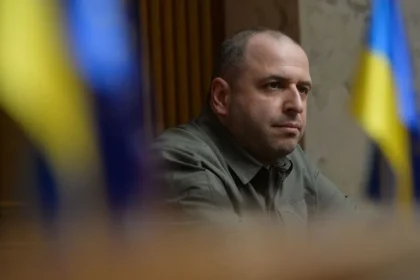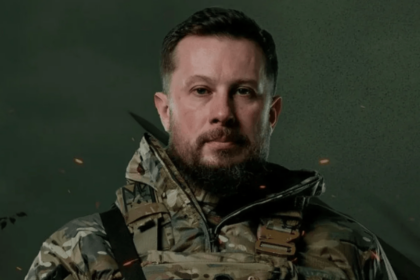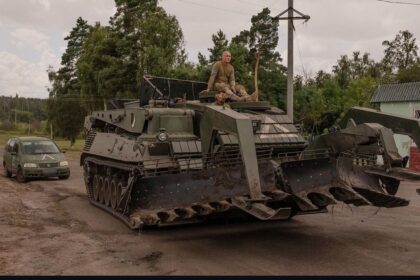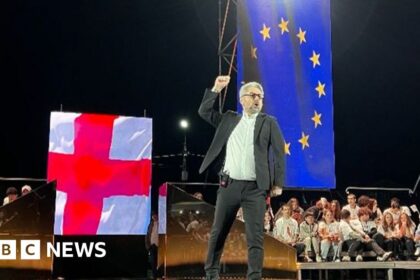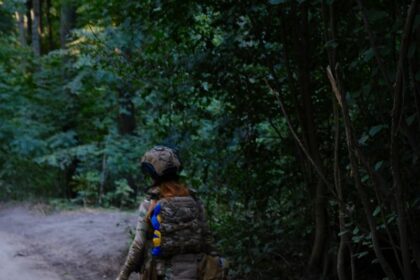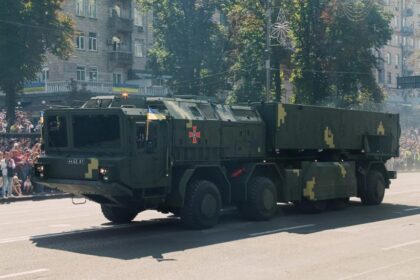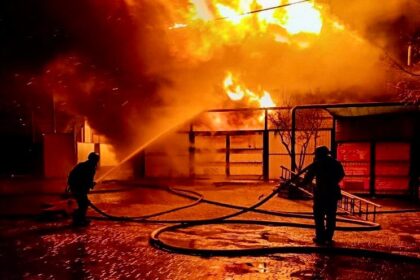**Russia Insists on Maintaining Control Over Ukrainian Regions as Condition for Peace Negotiations**
Russian Foreign Minister Sergey Lavrov has reiterated Russia’s demand for international recognition of its control over five Ukrainian regions – Crimea, Donetsk, Luhansk, Zaporizhzhia, and Kherson – as a condition for peace negotiations with Ukraine. This insistence comes despite ongoing efforts by the US to broker a peace deal.
In an interview with Brazilian news outlet O Globo published on April 28, Lavrov listed several conditions that Russia requires before entering into talks with Ukraine. These include a ban on Ukraine’s entry into NATO, the country’s demilitarization, and changes to Ukraine’s legislation that would restore the position of the Russian language, culture, and religious organization.
**A Return to Maximalist Demands**
Russia’s insistence on maintaining control over these Ukrainian regions is a clear departure from its earlier stance. In 2022, Russia illegally declared four of these regions – Donetsk, Luhansk, Zaporizhzhia, and Kherson – as annexed following widely condemned sham referenda. Crimea, occupied by Russia since 2014, was also included in Moscow’s territorial claims.
This demand is all the more striking given that Ukraine has ruled out ceding any territory as part of a peace agreement. Both Kyiv and its allies have rejected demands for a reduction of the Ukrainian Armed Forces.
**A Contradiction to Kremlin Statements**
Lavrov’s comments contradict a recent statement by Kremlin spokesperson Dmitry Peskov, who claimed that Russian President Vladimir Putin is ready to enter into talks with Kyiv without “any preconditions” and awaits Ukraine’s response. This contradiction highlights the complexities of Russia’s position on peace negotiations.
**A Shift in Western Policy?**
The US has reportedly considered de facto recognition of Russia’s control over Crimea as part of a potential peace deal, while rejecting demands for Ukraine’s complete withdrawal from other occupied territories. However, it remains to be seen whether this shift in policy will bring about any meaningful changes on the ground.
**Escalating Violence and Humanitarian Crisis**
Despite claims of support for de-escalation, Russia has continued its offensive operations along the front lines. Moscow has also intensified attacks on civilian infrastructure, with a recent attack on Kyiv killing 13 people on April 24. This escalation highlights the need for urgent action to address the humanitarian crisis in Ukraine.
**A Long and Difficult Road Ahead**
The path to peace negotiations remains fraught with challenges. Russia’s insistence on maintaining control over Ukrainian regions will likely be met with resistance from both Ukraine and its allies. As tensions continue to rise, it is clear that a negotiated settlement will require significant concessions from all parties involved.





